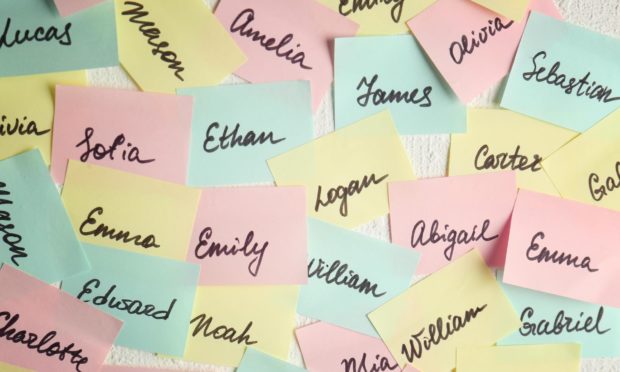Where does your name come from? How did you get it? This simple question has come up recently as an ice breaker in a million meetings – or Zoom calls – in the new “normal”.
It was the ice-breaker in a meeting I attended where a surprising proportion of those present said they were supposed to be called something else but their father was drunk by the time he got to the registry office and inexplicably registered the wrong name.
It was the question a jovial Santa once asked my two sons, just as he had asked hundreds of children before them. Too late we saw the look of confusion cloud their faces. They couldn’t answer because they had recently been placed with us for adoption and they couldn’t remember their new long surname.
To them, the words “what is your name” went straight to the heart of a confusing new experience. We had to step in and answer for them. We were probably the only parents that Christmas who had to tell Santa what their kids’ names were.
That was just the beginning. Ever since, we have been navigating this unexpected minefield. There have been honest mistakes, like the well-meaning old lady in the M&S checkout queue who saw my partner juggling the shopping and two young boys and said: “Don’t worry, you can always send them back.”
My partner quickly reassured the boys that this was a joke. Other comments, like: “Don’t you look like your mum,” now prompt nothing more than a knowing look between me and my youngest son, who has fair hair just like me.
But we do live in a constant state of high alert for any school lesson on genetics. There was one which asked children to bring in baby details – what they weighed when they were born, which hospital they were born in. That caused considerable anxiety which was blurted out at bedtime. I managed to find the health records we were given as part of the adoption process which thankfully had the answers.
Then there was the lesson where all the other children were asked to draw themselves and their parents and to note the similarities, while my son was given a worksheet on dogs. I asked him if he minded getting something different to everyone else but he was quite happy. Luckily he loves dogs.
It’s not just the adoption community. An increasing number of children are the product of sperm donors, not to mention those who never knew a parent for other reasons. These comments and pitfalls catch them, too, but they are nothing compared to the serious errors. Unfortunately we’ve also encountered those.
The Scottish education system automatically generates email usernames for every child but doesn’t seem to cope when those names need to be changed.
Last year the system suddenly reverted back to my son’s pre-adoption surname, a name he hadn’t used in five years. I know that we are not the only family this has happened to and this problem has been raised at the highest level, yet it happened again to my other son just weeks ago.
As well as the emotional impact, this is a blatant breach of data protection legislation.
Political correctness used to drive me mad. You can spend hours tiptoeing around language, finding the neutral way to express every sentence and end up with meaningless jargon. Half the time the people you are trying to please can’t even agree on what words they prefer. I was once berated by a nurse in children’s services for calling myself an “adoptive mum” rather than just a “mum”. Hang on, I thought, isn’t this my life? Can’t I decide what I want to call myself?
But words matter. They have important meanings and deep repercussions. Our children have a new life with a loving family. They have grandparents, uncles, aunts, cousins but not new genes.
My partner and I have the luxury of worrying that we’re turning into our parents. When I forget where I’ve hidden the Christmas presents, I realise that the scenario is horribly familiar. But my children will never know whose personality traits they share, whose eye colour they inherited or even how tall they will grow.
Some of us have straightforward lives. Yet thousands of children – and grown-ups – have a history which is a blank page.
Mistakes happen, but by taking a moment to think, we can avoid reminding them of the missing parts of their past as they forge a new future.
Eleanor Bradford is a former BBC Scotland health correspondent who now works in communications in the education sector

